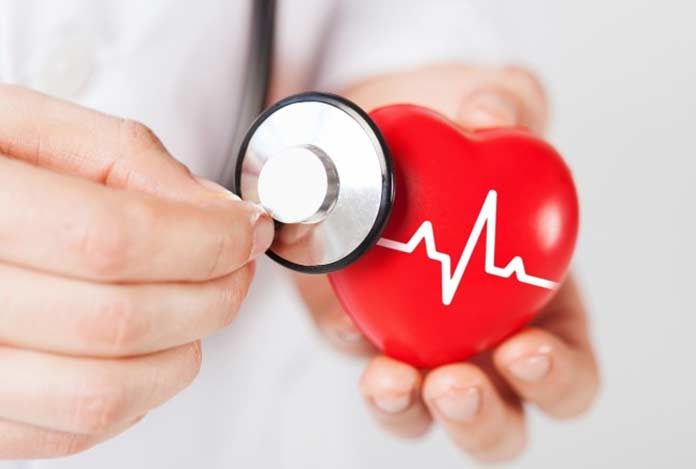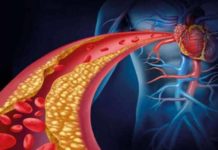
Heart disease is a serious health condition that has turned into a global epidemic in the last few decades, but the good news is that it is preventable! While there is no single cause of heart disease, but there are several risk factors that may increase the chances of developing the disease.
Dr. Mehmet Oz says that he often sees a lot of people having different heart conditions. Many times, he examines people with a history of heart attack and observes them before the attack. According to him, most of these people don’t even realize about the impending danger. Interestingly, some people, who have had a heart attack, don’t even know what had happened to them or when it had occurred.
An important thing about heart disease is that it’s a ‘silent killer.’ Without any prior symptom, it secretly creep into our life and may prove deleterious if proper care is not taken. Experts suggest that the only way to know your risk for heart disease is to see your doctor regularly and have periodic checkups.
Here, Dr. Mehmet Oz discusses about how to understand that you have a heart disease and figure out what’s wrong with your heart.
Know Your Numbers
If you have a heart disease, it is not necessary that your heart will send you some sort of warning signals. But, by considering these early symptoms, we can surely find that serious heart condition, which may occur in future. By knowing about such warning signs, we can manage the risk factors associated with heart disease or may completely eliminate them.
- Cholesterol: Dr. Oz says that a major factor that determines the risk of heart disease is LDL and HDL cholesterol. For proper functioning of heart, you must have low LDL and high HDL. If you have not tested your cholesterol level since quite a long time, then you must talk to your doctor to get this done.
- Blood Pressure: High blood pressure not only affects your heart, but it can damage your organs too without even letting you know. So, regularly keep a check on your high blood pressure, especially when you know that you are at a risk of developing heart disease.
- Waist Circumference: We all know that having too much fat in our body is not good for our health. But increase in fat around the waist is too dangerous. So along with focusing on your whole-body weight, you must also keep measuring your waistline from time to time. If your numbers are going high, then you must focus on reducing your belly fat.
- Diabetes: Diabetes is a severe condition that significantly increases your risk of getting heart disease. A diabetic must know how much he/she is at a risk for heart disease. Get you sugar level checked regularly or consult your doctor if it can help you reduce the risk factors of heart ailments.
Talking About Risks
So, to begin with all this number finding, you must first visit your doctor. Everyone should discuss about the risk of heart diseases as well as other conditions like cancer and diabetes with a doctor. If you have not done this before, then this is the right time to discuss such issues with your physician. Your doctor can help you figure out what risk factors you must check regularly; thereby, assisting you in leading a better and healthy life. Listed below are several things that your doctor might ask you about during your visit:
- Lifestyle: This may include questions like, what foods you include in your diet to get proper nutrition? How often do you exercise or meditate? And, what do you do to improve your health?
- Family History: Family history plays a major role in assessing the risk for heart disease. To reduce your risk, of getting a disease, your doctor may ask your about your close family members like siblings and parents, as well as distant relatives, such as grandparents, uncles and cousins.
- Other Health Conditions: Your doctor may ask if you have any other health issue that can elevate your risk of cardiac disease. Accordingly, your doctor would advise you about the most appropriate treatment for the existing condition.
- Past Medications and Efforts: If you are visiting a new doctor, then he/she might ask you about the medications that you have tried before or about the changes that you have made to improve your lifestyle. Such information may allow your doctor to help you in the best possible manner.
Recognize the Key Symptoms
Most people think that they know the typical warning signs of a heart attack, which is chest pain. But, sadly, that is not true! In fact, it is a rare sign that people experience when they suffer a heart attack. You must look for these symptoms to know whether you are in trouble or not:
- Chest Discomfort Dr. Oz says that by chest discomfort is not exactly about chest pain, but will happen each time you begin to intensify your exercise. This could be an early symptom that you are at a risk of having a heart attack.
- Pressure on the chest or chest pain or that gradually spreads to your back, jaw or shoulder.
- Intense chest pain that worsens when you breathe.
- Pain in the abdomen due to unknown reason.
- Permanent weakness or fatigue that can’t be explained.
- Indigestion, which is not like the heartburn you have had earlier.
- Anxiety about something is wrong going on inside your body.
- Symptoms of flu that is not related to any recent health condition.
Thus, it is very important to check for these symptoms. Any individual symptom does not indicate that you are suffering a heart attack. However, you should be worried if you are experiencing a few of these symptoms together.
Never Hesitate
Don’t hesitate if you think you are having a heart attack. Call your doctor or try reaching an emergency room as soon as possible. Studies have repeatedly shown that as compared to men, women are more prone to ignore the symptoms of heaving a heart attack, ending up delaying the help for the same.
Always remember that nothing is more perilous that your heart at risk. Even if you survive a heart attack, it is likely to damage your overall health. Dr. Oz hopes that this valuable piece of information will surely help people to ward off the risk of heart disease as prevention is always better then cure.










